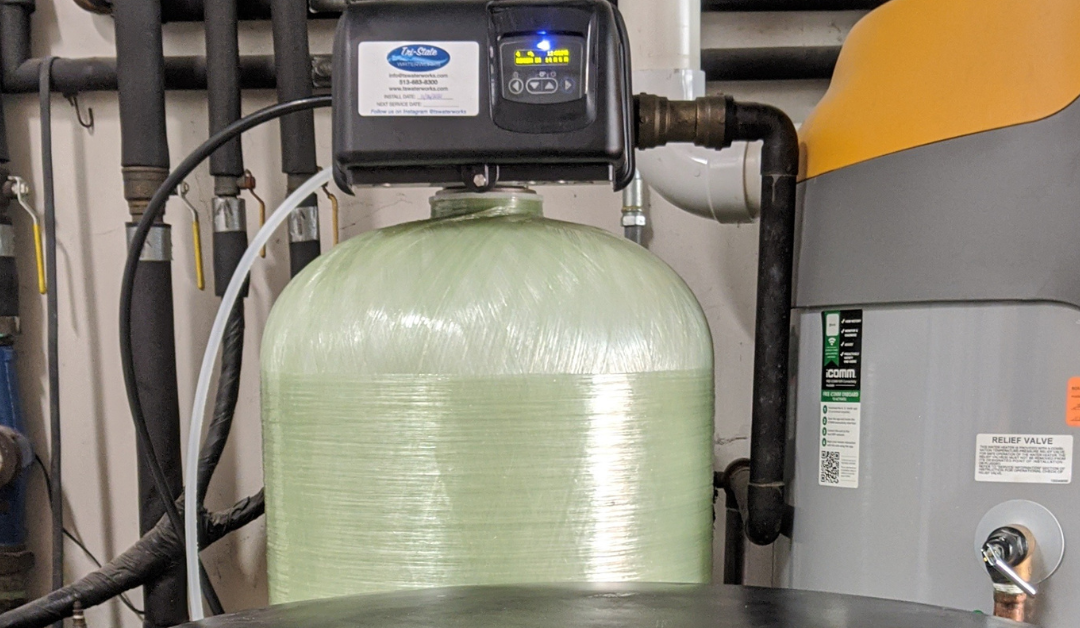In the quest for cleaner, softer, and longer-lasting clothes, the quality of water used in laundry can significantly impact the outcome. Hard water, rich in minerals like calcium and magnesium, is a common culprit behind many laundry woes. This is where a water softener comes into play, transforming the way your home handles laundry. Here are the top five ways water softeners can revolutionize your laundry experience, ensuring your garments stay soft, vibrant, and durable.
Enhanced Cleaning Efficiency
One of the most notable benefits of using a water softener is its ability to increase the cleaning efficiency of your washing machine. Hard water interferes with the effectiveness of detergents, making them less efficient at removing dirt and stains from clothing. A water softener removes the minerals responsible for water hardness, allowing the detergent to dissolve properly and work more effectively. This results in cleaner clothes with every wash, without the need for extra detergent or higher temperatures. By improving detergent performance, a water softener not only ensures your clothes are thoroughly cleaned but also contributes to environmental conservation by reducing chemical usage and energy consumption.
Protection and Longevity of Fabrics with Water Softeners
Hard water can be harsh on fabrics, causing them to wear out and fade prematurely. The minerals in hard water can become embedded in the fibers of your clothing, making them stiff and rough to the touch. Over time, this can weaken fabric integrity, leading to holes and tears. By softening your water, you protect the fibers of your clothes from damage, preserving their color, shape, and overall quality. Clothes washed in softened water tend to look better and last longer, helping you save money on replacements and maintain a more sustainable wardrobe.
Reduced Limescale Build-up
Water softeners don’t just benefit your clothes; they also protect your washing machine. Hard water can cause limescale build-up inside your washing machine, affecting its efficiency and lifespan. This build-up can clog pipes, reduce heating efficiency, and even lead to costly repairs. By using softened water, you minimize the risk of limescale accumulation, ensuring your washing machine operates at peak efficiency. This not only extends the life of your appliance but also keeps it running smoothly, saving you from unexpected breakdowns and maintenance costs.
Lower Energy Costs and Consumption
The efficiency of your washing machine’s heating element can be significantly hampered by the presence of hard water. It takes more energy to heat hard water, which can lead to increased energy bills. Softened water heats up more efficiently, allowing your washing machine to operate at lower temperatures while still achieving the same, if not better, cleaning results. This reduction in energy consumption can lead to noticeable savings on your utility bills, making a water softener an investment that pays off in the long run.
Smoother, Softer Clothes Without Chemical Softeners
Finally, a water softener naturally makes your clothes softer to the touch. Hard water leaves mineral deposits on your clothes, causing them to feel stiff and scratchy. Softened water eliminates this problem, leaving fabrics feeling smooth and soft after every wash. This reduces the need for chemical fabric softeners, which can irritate sensitive skin and contribute to environmental pollution. Plus, softer clothes mean a more comfortable wear, enhancing your overall satisfaction with your laundry.
FAQs About Water Softeners and Laundry
How Often Should I Regenerate My Water Softener?
Regeneration frequency depends on factors such as water hardness, household size, and water usage. Most water softeners regenerate every few days to maintain optimal performance.
Can I Use Potassium Chloride Instead of Salt in My Water Softener?
Yes, potassium chloride can be used as an alternative to traditional salt in water softeners, especially for individuals with dietary restrictions or concerns about sodium intake.
Will a Water Softener Remove Existing Limescale Buildup?
While a water softener can prevent future limescale formation, it may not remove existing buildup. Consider using specialized descaling products or contacting a professional for limescale removal.
Do Water Softeners Waste Water?
Water softeners require a certain amount of water for regeneration, but modern systems are designed to minimize water waste through efficient regeneration processes.
Can I Install a Water Softener for Specific Appliances Only?
Yes, you can install point-of-use water softeners for individual appliances such as your washing machine or dishwasher to target hard water issues in specific areas of your home.
How Long Do Water Softeners Last?
With proper maintenance, water softeners can last upwards of 10 to 15 years. Regular servicing and upkeep are key to maximizing the lifespan of your system.
Investing in a water softener can significantly improve your home’s laundry, from boosting detergent efficiency and protecting your clothes to extending the life of your washing machine. Not only does it contribute to the longevity of your garments and appliances, but it also offers an eco-friendlier approach to laundry by reducing chemical and energy consumption. With all these benefits, a water softener is indeed a worthwhile addition to any home, promising cleaner, softer, and more sustainable laundry practices. If you are interested in a water softener, contact us today!

